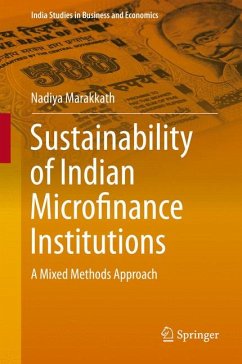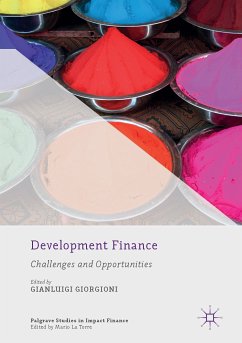For any practicing social entrepreneur, building a sustainable organization that stands the test of time remains a formidable challenge. Using a mixed-methods research approach, this book investigates, specifically in the Indian context, the concept of sustainability in one of the most celebrated form of social enterprises of our times - Microfinance Institutions (MFIs). What are the determinants and discriminants for the sustainability of Indian MFIs? How are these factors being managed by operationally efficient Indian MFIs that remained sustainable at reasonable interest rates, even before the onset of the crisis and imposition of ceilings in Indian microfinance markets? What does the Indian microfinance crisis teach us about sustainability management and mismanagement? The discussion centred on these questions, depicts sustainability to be a strategic issue that needs managerial attention and not left to serendipity.
At a time when the industry is recovering from the adverse effects of a crisis and questions the fixed interest rate imposed by regulators, the findings mentioned in the book revive the lost hope for the Indian microfinance industry. By deciphering the strategies used by efficient and sustainable MFIs and discussing the lessons that the crisis has imparted to the Indian microfinance markets, this book enables Indian MFIs to march towards efficient and sustainable operations, without losing focus on their clients.
Dieser Download kann aus rechtlichen Gründen nur mit Rechnungsadresse in A, B, BG, CY, CZ, D, DK, EW, E, FIN, F, GR, HR, H, IRL, I, LT, L, LR, M, NL, PL, P, R, S, SLO, SK ausgeliefert werden.









